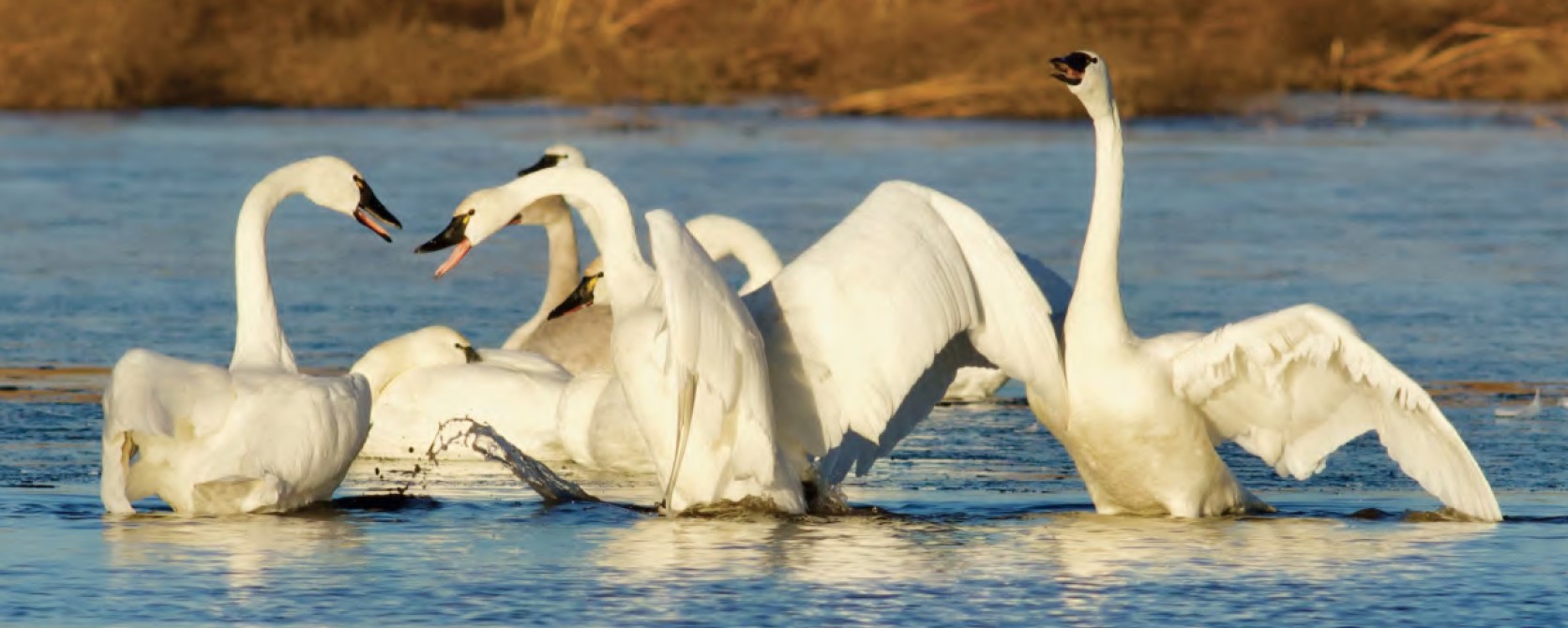 Tundra swans at Madison Audubon Society's Goose Pond Sanctuary, where over 260 species of birds have been spotted.Catch-up on the latest Accreditation Corner from the Land Trust Alliance's Saving Land magazine.
Tundra swans at Madison Audubon Society's Goose Pond Sanctuary, where over 260 species of birds have been spotted.Catch-up on the latest Accreditation Corner from the Land Trust Alliance's Saving Land magazine.
Applying for accreditation no matter the mission: Audubon Societies
by Caity Pinkard
When the Madison Audubon Society in Wisconsin applied for accreditation in 2017, the organization already owned or managed 1,500 acres of land. Yet, as an organization dedicated to avian conservation, it was not always thought of as a typical land trust. "We used to get looks of surprise or confusion when we showed up to land trust meetings and conferences," says Executive Director Matthew Reetz. "Folks don't usually think of an Audubon that way. But, while we also do many things an Audubon chapter does, our work in land protection makes us a land trust too."
Audubon is a network of state programs, nature centers and local chapters dedicated to protecting America's birds through science, advocacy, education and on-the-ground conservation. Nationwide, there are three accredited Audubon organizations, collectively protecting over 46,000 acres of land and engaging 12,000 volunteers.
At Madison Audubon, accreditation was a logical step in its mission of protecting avian populations. "Because we work in bird conservation, we like to say we're in the 'joy business,'" says Reetz. "Birds bring so much joy. Madison Audubon has long emphasized land acquisition, protection and restoration as part of our mission to conserve Wisconsin's amazing birds. In fact, it's one of the most direct ways we can do that: by providing food, habitat and resting spaces for resident and migratory birds."
Accreditation not only helped them live up to that mission, but also to grow as an organization. "It allowed the organization to grow in behind-the-scenes but significant ways through improvements to high-level business practices and ensuring our members and the public trust in our work," he says. "Accreditation showed the public that when we say we're protecting land forever, we really mean it."
Reetz acknowledges that applying for accreditation is hard work. "Accreditation is like a long, challenging hike," he says. "But you take one step at a time, and you eventually end up at the summit." For Madison Audubon, the climb was worth the effort. "The value of accreditation lies in the permanence of the work, as well as the community of other land trusts who work toward similar goals," says Reetz.
While Audubons protect birds and the places they need, many share the same vision as land trusts: protecting land in perpetuity. "Together, we are building a network of land that will always be available for wildlife and people to enjoy and benefit from," Reetz says. "Our sanctuaries and properties are beautiful, vibrant, life-supporting places. Thanks to accreditation, the public can have the assurance that those lands will stay that way forever."




